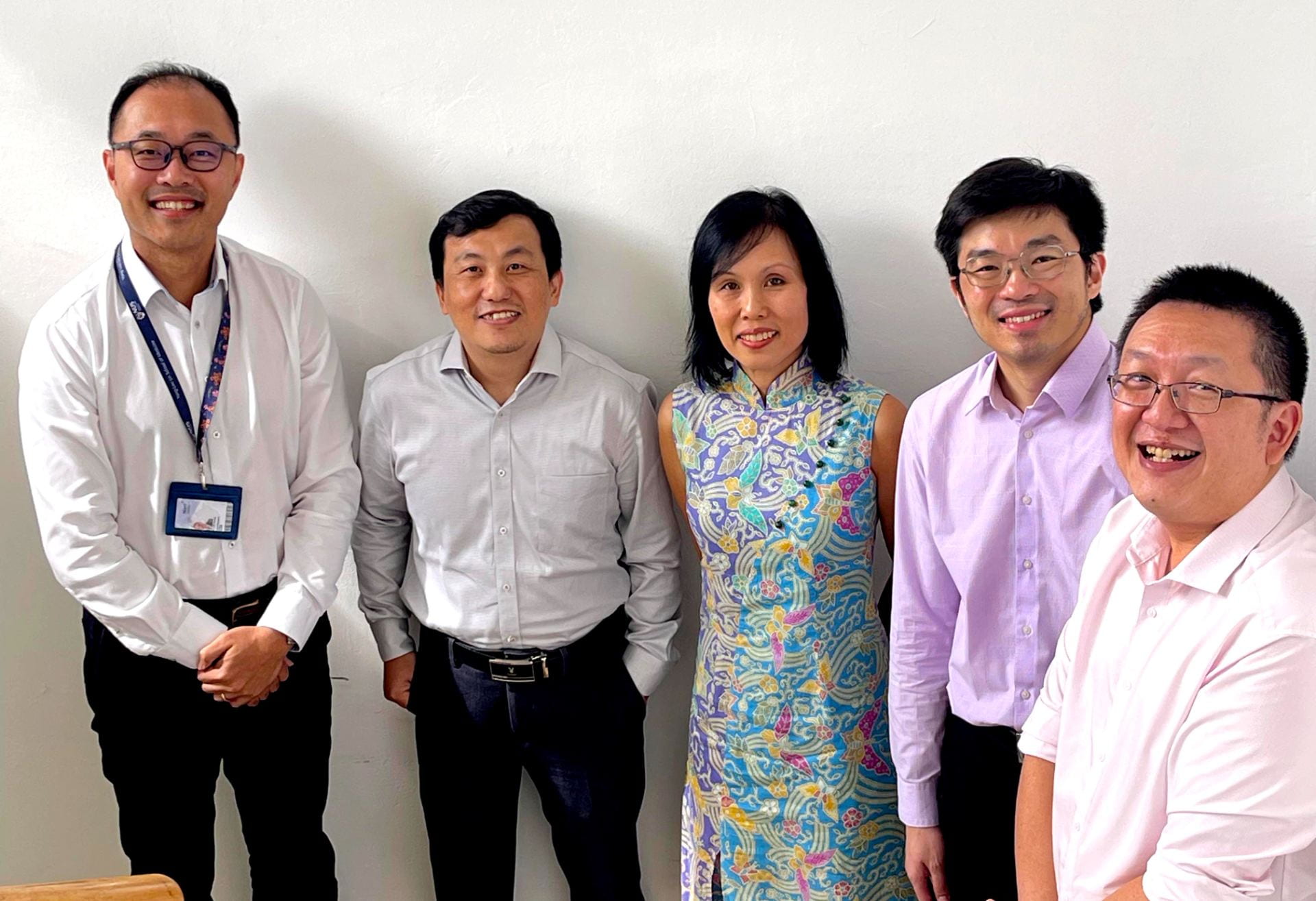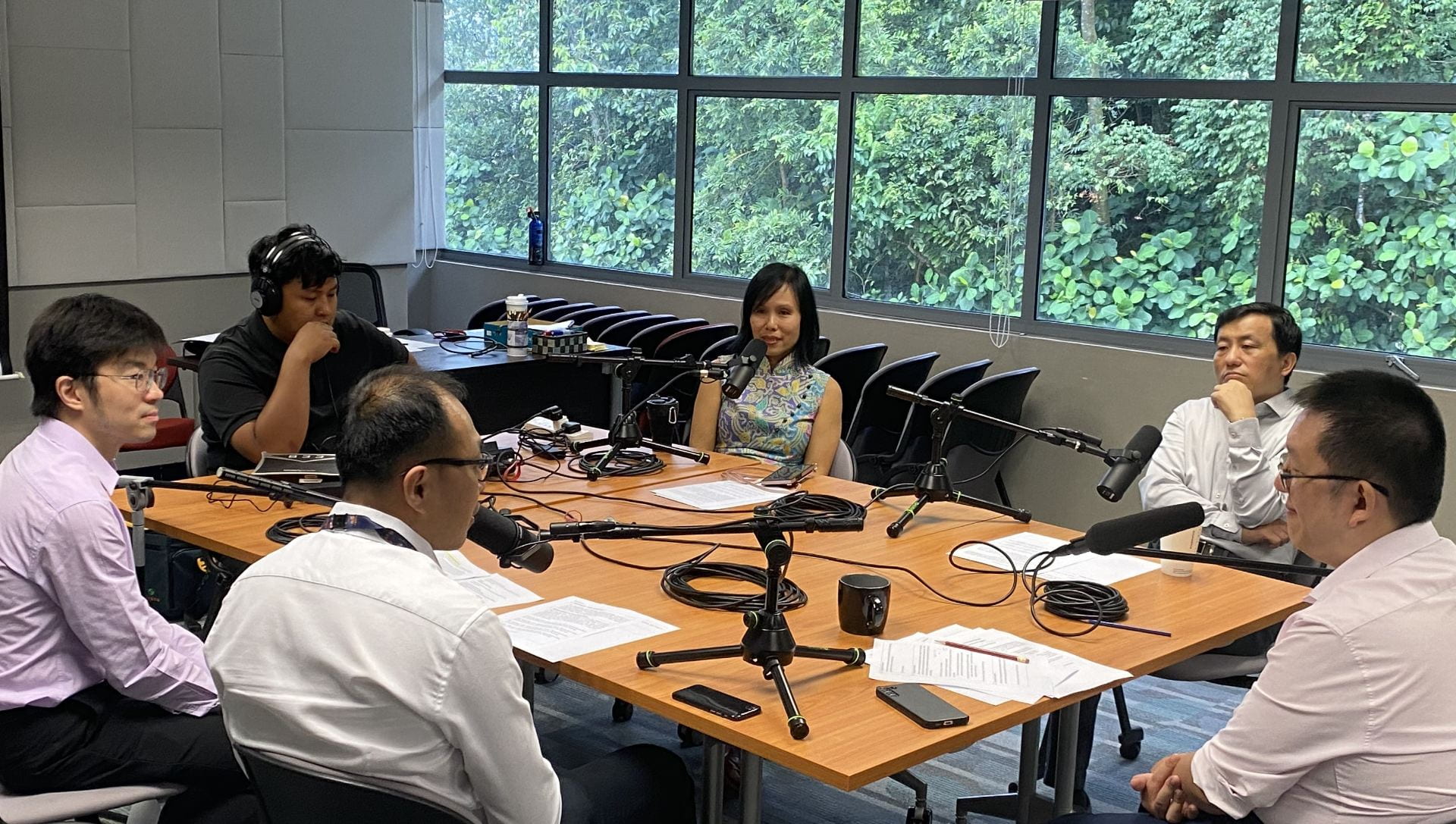CHEN Zhi Xiong, Department of Physiology,
Yong Loo Lin School of Medicine (YLLSOM)
LEK Hsiang Hui, Department of Information Systems & Analytics,
School of Computing (SOC)
LIU Qizhang, NUS Business School
Lynette TAN Yuen Ling, Residential College 4

In this episode, we are pleased to have a panel comprising NUS colleagues who have been actively exploring and applying generative artificial intelligence (GenAI) and AI tools in their respective teaching contexts.
In this conversation, Zhi Xiong, Hsiang Hui, Qi Zhang, and Lynette share how they are currently applying GenAI/AI tools in their respective teaching practice. They also discuss issues and challenges educators might face when using AI, and what educators need to know to address them.
This episode is chaired by Assoc Prof SOO Yuen Jien, Director of the Centre for Development of Teaching and Learning (CDTL).
Part 1: INTRODUCTION, EXPERIENCES & CHALLENGES IN USING AI IN DIFFERENT TEACHING CONTEXTS
(11min 50sec) | FULL TRANSCRIPT
- Benefits of GenAI: Helps students at different stage of their learning, a high-performing teaching/research/editorial assistant; enable educators to sharpen their teaching
- Drawbacks of GenAI: Potentially gives incorrect information
- Students’ level of awareness & understanding of GenAI application can vary, i.e. we cannot assume that they are well-versed in GenAI despite being part of the generation of “digital natives”.
- As such, important to equip students with ability to evaluate if the GenAI output is correct or not
- Learners’ challenge: Potentially become over-reliant on GenAI for answers and fulfilling learning tasks; risk of widening wisdom inequality gap among learners
- Educators’ challenge: Are we nimble enough to adapt to this new and unpredictable tech-enhanced future? What can we do to mitigate the widening wisdom inequality gap?

Part 2: How AI can be Applied Meaningfully in Teaching & Learning
(19min 21sec)
- At what stage of learning do we introduce GenAI in a course? e.g. A course that teaches basic/fundamental/threshold skills for a subject, or higher-level courses
- Recognising that learners need to be differentiated when applying GenAI in teaching
- GenAI tools: Can be useful productivity tools that enable students to complete basic learning activities efficiently and help them to focus on higher-order tasks; the danger is when there is an over-reliance on GenAI to generate answers
- Additional concerns: GenAI’s impact on creativity and sense of morality
- Educators’ role in bridging wisdom inequality gap when it comes to GenAI: Focus on higher-order thinking in courses, and be intentional in safeguarding and building on learners’ moral intelligence
Part 3: What Educators Need to Know to Apply AI in Their Teaching
(9min 49sec)
- Have facility with the GenAI tool, i.e. use it for a period of time across different functions to learn its capabilities and limitations
- Learn the GenAI tool with one’s students to gain a better understanding of how students apply it in their own learning
- Encourage fellow educators to at least explore GenAI and understand how it works, even as some remain apprehensive about adopting it in their teaching; also important to recognise that it will make an indelible impact on the educational landscape and learners in the long-term
- Important to consider how educators want to collaborate with GenAI, i.e. we apply AI to serve humanity for greater good, and not the other way around.
Click on the image below to listen to the full recording of the podcast:

We hope you have enjoyed the podcast. Follow us on Facebook, LinkedIn, and Instagram to stay up-to-date on CDTL-related news and events.
 |
CHEN Zhi Xiong is an Associate Professor and Assistant Dean (Education) at the Yong Loo Lin School of Medicine (YLLSOM). His teaching and learning interests cover medical sciences in clinical reasoning and decision-making, interdisciplinary and transdisciplinary learning, faculty development and evaluation, as well as student and faculty mentoring. Zhi Xiong can be reached at zhixiong_chen@nus.edu.sg. |
 |
LEK Hsiang Hui is a Senior Lecturer at the Department of Information Systems and Analytics and Assistant Dean (Industrial Relations) at the NUS School of Computing. He currently teaches undergraduate courses in Enterprise Systems Design and Development courses. He also conducts executive training in Healthcare Analytics at the Centre of Health Informatics (CHI). His teaching and learning interests cover sentiment analysis, natural language processing, and education technology. Hsiang Hui can be reached at hsianghui@nus.edu.sg. |
 |
LIU Qizhang is Associate Professor (Educator Track) and Deputy Head at the Department of Analytics & Operations at NUS Business School. His teaching and learning interests cover discrete optimization, operations management, transportation and logistics, as well as behavioural study. Qizhang can be reached at bizlqz@nus.edu.sg. |
 |
Lynette TAN Yuen Ling is a Senior Lecturer and the Director of Studies and Associate Director of Student Life at NUS Residential College 4 (RC4). Lynette teaches Systems Thinking at RC4 where her course explores the philosophies and work of the Systems Pioneers and empowers students to be humane change agents as they navigate global issues that are critical in the 21st Century. Lynette’s other teaching and research interests include Hollywood and Singapore Cinema, gender studies, and post-colonial studies. She has also published on gamification in higher education, student motivation and higher order learning skills. Lynette can be reached at rc4lynette@nus.edu.sg. |

